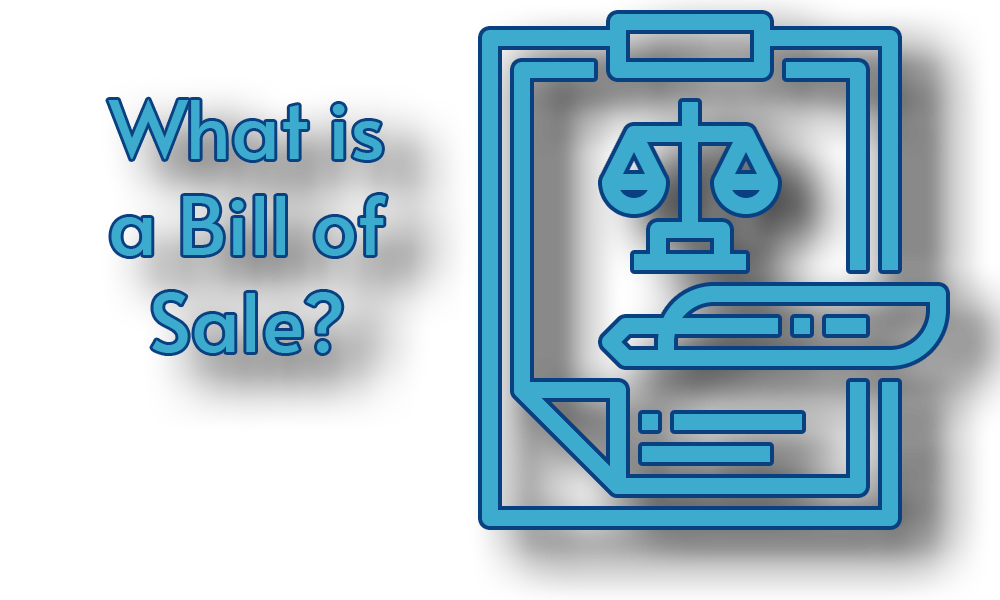A bill of sale is a legal document that proves that an item was sold for valuable consideration between the seller and the buyer. For the buyer, it is an important document that can be used as evidence of a transfer of ownership.
Not all items require a bill of sale. Fashion items like clothes, bags, and shoes do not usually require a bill of sale. It is important that the item you’re buying is of value before you can demand a bill of sale.
A bill of sale is required in many states usually for items with value such as aircraft, autos, motorcycles, and watercraft. It is also used as a record of sale for personal properties like branded horses or furniture.
It is very easy to feel overwhelmed especially if it is your first time utilizing a bill of sale. However, you should take note that this information is extremely important if something is wrong with the item you bought and the seller failed to notify you.
Content of a Bill of Sale
A generic bill of sale includes the following information
- date of purchase
- name and address of seller and buyer
- consideration
- description of property being sold
- warranty
- guarantee that the item is free from claims and defects
- Signature of seller and/or buyer
- Notarization
A successful sale is basically evidenced by a bill a sale, which typically comes from the seller. While you can simple draft your own bill of sale, it is important that you consult a lawyer who is also a notary public to ensure your bill of sale follows the regulatory standard of your state.
Does Bill of Sale Prove Ownership
A bill of sale does not prove ownership. It is only a record that a sale transaction has transpired between the owner of a property and the buyer. Even so, you may be required to present a bill of sale before you can successfully complete a title transfer.
A very common example of this is a Vehicle Bill of Sale. All states except for Illinois and Tennessee don’t require an auto bill of sale but some states would require you to use a bill of sale from the Department of Motor Vehicles (DMV).
We do recommend that you have a bill of sale even if your state does not require a bill as an assurance. In case you find a defect in the vehicle, which the seller intentionally withheld, you can use the bill of sale to claim for damages.
A Vehicle Bill of Sale typically includes the following information:
- Vehicle type (i.e., car bill of sale, motorcycle bill of sale, boat bill of sale)
- Make, model, and year of vehicle
- Odometer reading
- Hull number
- Engine serial number
- Vehicle registration number
- Vehicle identification number
“As is” vs. Warranty
When drafting a bill of sale, it is very important to emphasize whether you are selling the property “as is” or with a warranty. If you’re selling the property “as is” it means there is no warranty and the level of protection for the buyer is limited.
If you’re selling a property with a warranty, it means that you guarantee the property is free from any defects or claims. If the warranty is limited, you need to spell out exactly what damages are covered under the warranty and which part is shouldered by the buyer.
If the seller misrepresents or hides information regarding the condition of the item subject of the sale, the bill of sale may be rendered null and void. Also make sure that your bill of sale complies with the regulatory standard of your state.
Here are some bill of sale examples with free templates:
- Free Bicycle Bill of Sale Template
- Free Boat Bill of Sale Template
- Free Cat Bill of Sale Template
- Free Furniture Bill of Sale Template
- Free Gun Bill of Sale Template
- Free Livestock Bill of Sale Template
- Free Motor Vehicle Bill of Sale Template
- Free Motorcycle Bill of Sale Template
- Free Pet Bill of Sale Template
- Free RV Bill of Sale Template
- Free Trailer Bill of Sale Template
- What is a Bill of Sale?
